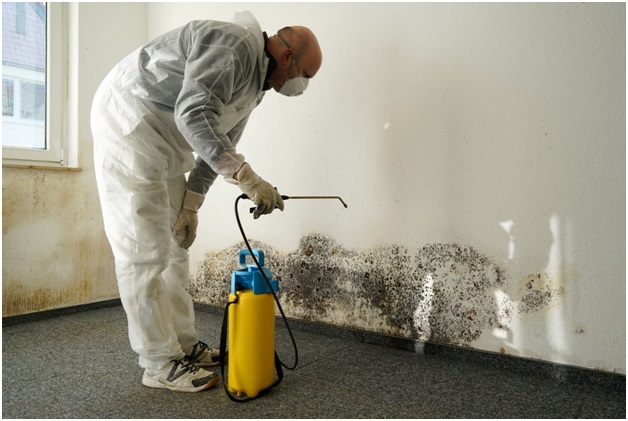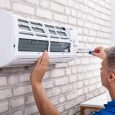The average homeowner’s insurance claim for water damage runs nearly $11,000. Water damage is also one of the most common reasons for a homeowner’s claim. Why?
Think about how many pipes and water sources there are in or attached to your home. That’s to say nothing of external sources of water. If your neighbor leaves a hose on near the fence overnight, you can conceivably find a big puddle of water in your basement the next day if the lawn lays just right.

If you’re fretting about the potential for water damage in your home, keep reading from some of the most common causes and what you can do to avoid the damage.
Leaking/Burst Pipes
Any homeowners that live somewhere that the temperature drops below freezing probably have a fear tucked away somewhere that a hard freeze will cause burst pipes. Anyone with an older home probably worries about older, galvanized pipes rusting or corroding.
You can help avoid the burst pipe problem by using pipe insulation. It’s essentially just a foam tube with a lengthwise slit in it. You just slide it over the pipe.
You can also take other steps like leaving cabinet doors open when the weather turns especially cold and letting your faucets maintain a slow drip.
As for pipes leaking or bursting from corrosion, you’ll need a plumber. The only fix is complete removal of the old pipes and replacement with a non-corroding alternative like PVC or PEX.
Washing Machine Leak
In the majority of cases, the water supply lines that feed into your washing machine stay under pressure all the time. Some supply lines use braided steel to ensure the pipe remains intact. Some companies offer supply lines made of less sturdy materials, like rubber. After a time under constant pressure, the rubber simply gives out and you end up with flooding in your laundry room.
You can avoid the problem by either turning off the water supply manual after each use or upgrading to braided steel supply lines.
Clogged Drains
Another very common cause of flooding is a clogged drain. In bathrooms, you often see clogs caused by a buildup of hair and soap residue. In kitchens, the culprit is usually a buildup of grease and food bits that went down the drain.
You can avoid clogs in your drains through a few common methods, such as:
- Install mesh traps in your showers’ drains to catch hair
- Collect grease in a sealable container and throw it away
- Use bacteria-based drain and trap cleaners periodically
- Periodically clean pop-up stoppers in bathroom sinks
While these can’t prevent every potential drain clog, they’ll do a lot in terms of keeping your drains working.
Clogged Gutters
Good gutters help collect water coming off your roof and redirecting it away from your home. Of course, leaves, twigs, and other debris build up in your gutters over time. Eventually, they clog the downspout.
When that happens, water spills over the sides and can find its way inside your eaves and then walls. Keeping your gutter clean is the simplest way you can avoid the problem.
Sewer Line Backs Up
The big bad of your plumbing system is the sewer line. As long as it works correctly, everything is sunshine and rainbows. The minute it backs up, you just hope it won’t overflow the toilets.
Backed up sewer lines can stem from a few things. The most common reasons are:
- Tree roots damage the lines
- Flushing things other than human waste or toilet paper, like feminine hygiene products or facial tissue
- Grease
You typically need a plumbing pro to diagnose and fix a sewer line problem. As long as don’t flush things you shouldn’t, it should help keep the line clear.
Sump Pump Failure
Homes with basements in areas with a lot of water often come standard equipped with a sump pump to ensure the basement stays dry. As long as the sump pump remains operational, it will generally keep your basement water free.
When the sump pump fails, though, it can create a minor flood in your basement. Homeowners typically don’t do anything specific that causes sump pump failure. The pumps do need routine maintenance, such as making sure the outlet pipe remains unblocked or cleaning the inlet screen.
Following the instructions from the manufacturer offers you the best odds of avoiding sump pump failure.
Weather
Extreme weather events such as hurricanes or floods pose a water damage threat to any home in their path. It is very little you can do to avoid this damage. The best you can hope for in most cases is that the damage will prove repairable.
Dealing with Water Damage
Some water damage you can fix with some DIY elbow grease. Let’s say that leaking water caused linoleum tiles to peel up from the floor. Once you dry the area, you can rip up the damaged tiles and put new ones down. In most cases of water damage, you need help from a professional like ADP Group.
Professionals come with tools like heavy-duty dehumidifiers, fans, and even vacuum trucks. These tools let them remove water and dry the area much faster than you can typically do on your own. Ever worked with water damage pros before? You can see a good example of one at https://www.ctr-nw.com/twin-falls-water-damage/.
Many water damage companies are also contracting companies that offer restoration services. This lets you deal with any remaining water and get estimates for repairs without ever needing a second call. They will routinely work with your insurance company as well for the claim.
Avoiding and Dealing with Water Damage
Water damage is an unfortunately common issue in homes. You can take steps that help you avoid the odds of water damage.
Avoid letting grease or large debris go down your drain or get flushed. Use mesh traps in drains. Upgrade your pipes and water supply lines to stronger or non-corrosive alternatives.
If the worst does happen, call in professional help to clean up the water and do repairs.
Looking for some extra home safety and improvement tips? Head over to our Home & Garden section for some more articles.




